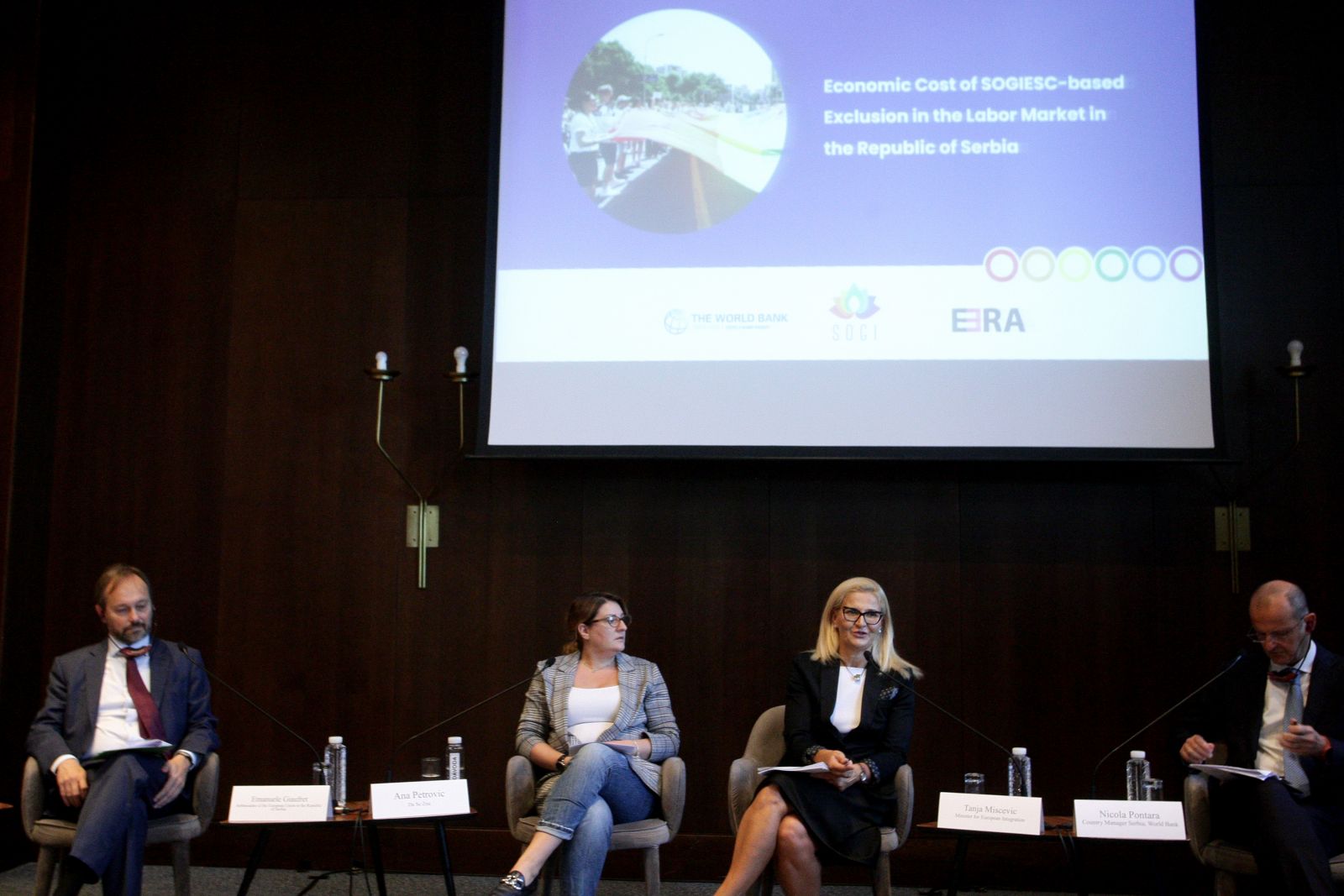
Minister of European Integration Tanja Miščević pointed out today that inclusion of any marginalised group is not only a matter of the protection of human rights, but an important economic question to be taken into serious consideration by every state.
At the panel “Economic Costs of Exclusion” organised by the World Bank, where the main topic of discussion were the economic costs of the LGBTQ+ exclusion from the labour market in Serbia, Minister Miščević recalled that including women in the labour market was also a matter of inclusion at one point.
“This helped us learn that including all citizens of one state in its production and development can only bring benefit”, Miščević emphasised.
In the process of European integration, in Miščević’s words, the right of every minority to protection has its place in the negotiations, not only for the EU membership, but from the first moment for our Council of Europe membership negotiations.
As the Report nicely notes, the framework of this right is in place in Serbia, at a very high level. Yet, the matter of proper implementation is a problem for every country. You can implement it one way or another, but here we talk about the implementation that can bring track record”, Miščević said.
She has explained that the meaning of track record, which still lacks a proper translation equivalent in Serbian, implies that based on the right codified in the domestic law, one can fully protect their right before the courts until the very last court instance.
“If we boil it down to the specific matter of inclusion, it means that prohibition of work-related discrimination of the LGBTQ+, which is visible from the reports presented by the Commissioner for Protection of Equality to the Assembly, stands as an example of track record”, Miščević further explained.
Talking about the Report presented at the panel discussion today, she has explained that the Report was written based on the European Union Agency for Fundamental Rights Report from 2019, and compared with our reports written until 2021, adding that many things have changed since then.
“Many laws were adopted, Law on the Prohibition of Discrimination, as well as the Strategy and accompanying Action Plan, however, sound implementation is now the key”, Miščević said.
She mentioned that the matter of human rights protection, in particular the minority rights that Serbia as a state undertook to respect, defending its citizens, regardless of their race, gender or minority, because the respect for human rights is the basis of functioning of every democratic society in the world today.
“I would remind you that prohibition of discrimination at work is the only right inscribed in the EU founding treaties from 1951 until now, and it is being extended to new groups, the group whose labour rights are now at highest risk, namely the LGBTQ+”, the Minister said.
According to Miščević, the Law on Gender Equality is also a novelty, as well as the Strategy dealing with prevention and prosecution of discrimination with the Action Plan until 2030, which is one of the most important and core documents and the integral part of the documentation in preparation for Chapter 23.
“In continuous conversations with civil society, the National Convention on the EU, but also through Progress Reports of the European Commission, we could have seen that the previous year has brought progress in this segment, through the Youth Guarantee Scheme, which is one of the important elements”, Miščević explained.
Based on the Report written by the World Bank, Serbia has made a significant progress in the protection of human rights of LGBTQ+ persons, however, data show that they still belong to the most marginalised group in the country, often deprived of their basic rights such as the right to life, freedom, safety and equality before the law.
Source: Tanjug










